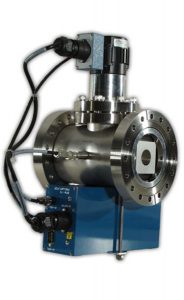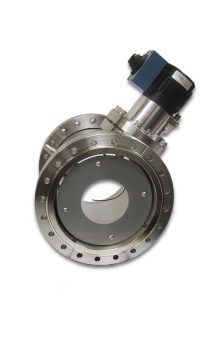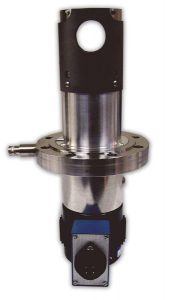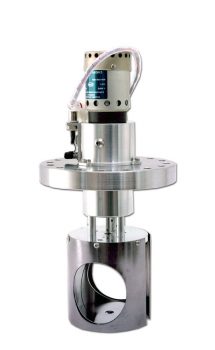NEC beam profile monitors (BPM) provide a continuous scope display of the shape and position of the beam cross section in both X and Y coordinates. They can monitor positive or negative beams of electrons, ions and energetic neutral particles.
The unique design of NEC’s beam profile monitors has made them among the most popular and reliable beam diagnostic instruments available, with over 2,000 BPMs provided for customers worldwide. The NEC beam profile monitor reliably gives accurate information concerning the beam cross-section for ion beams with currents as low as 1 nA for most models. Our low current model can monitor currents in the fA range.
The NEC beam profile monitor system is ideally suited for applications that require instantaneous scope display of beam cross-sectional shape and position without significantly interrupting beam transmissions. Particle beams of electrons, ions or energetic neutrals can all be monitored.
The unique patented design of the NEC beam profile monitor relies on the collection of secondary electrons from a grounded scanning wire. This arrangement eliminates contact noise at the rotating scanning wire. Here’s how it works:
The 8-series has proven to be efficient and reliable over the past several decades. The next generation 9-series model offers even more precise control and responsiveness.
Enhancements incorporated into the BPM 9-series include:
• Servo controlled motor
• Improved magnetic coupling
There are several variables that determine the best BPM for your application and NEC will help you elect the most favorable BPM for your needs. In general, the BPM 8 series works best when controlling the BPM locally or via a 24 V control signal with your own control system. The BPM 9 series works best when controlling the BPM remotely via CAMAC or ACT.
Learn more about BPM controllers, here.
Within each series, NEC offers four standard models of BPMs, with various versions and options for each model. Below are brief descriptions of each model
| Model BPM80/BPM90 |
The Original Beam Profile Monitor – and Most Popular Model
|
 |
| Model BPM83/BPM93 |
For Large Diameter Ion Beams
|
 |
| Model BPM81/BPM91 |
For Existing Housings
|
 |
| Model BPM82/BPM92 |
For Existing Housings & Larger Diameter Beams
|
 |
The standard beam profile monitor system will routinely monitor positive or negative beams with current densities to 10 nA/cm2. NEC has recently developed a low current beam profile monitor with a minimum detectable beam current in the FemptoAmp range. Please contact NEC for further information.
For a complete beam profile monitor system, the BPM must be connected to an NEC controller and a display oscilloscope.
NEC offers single-unit and multi-unit beam profile monitor controllers. There are also options within the multi-unit controllers for local or computer control.
The digital display oscilloscope to be used with the BPM must have the following specifications:
An analog oscilloscope can be used if it has simultaneous Z axis intensification and remote
trigger. Upon request, NEC can recommend and/or supply an oscilloscope that meets the above requirements.